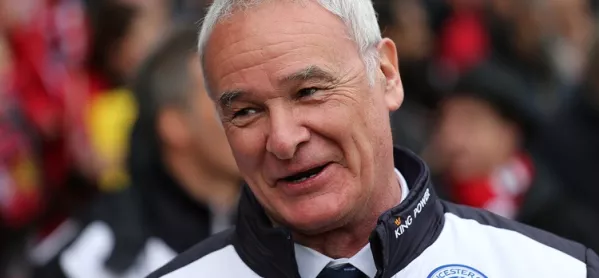As the shortened week got underway after the bank holiday, I spotted a sharp contrast between two news stories. First, the group of parents (a lot of them) who took their children out of school on Tuesday in protest at the Year 2 Sats. The weather was kind, and they enjoyed a pleasant day at museums, out in the woods and fields: doing, well, perhaps what children should be allowed to do more of instead of wading through the complexities of spelling and grammar.
It wasn’t their protest that struck me, however, so much as the reaction of their critics.
There were thundering voices of disapproval, blaming the parents for being irresponsible and blaming schools for administering the tests irresponsibly so that they put pressure on the children. In a BBC interview it was claimed that, if teachers did their job, these tests wouldn’t be necessary anyway.
Meanwhile, schools minister Nick Gibb admitted live on radio that the government isn’t much interested in the individual scores of children: the tests are actually about testing schools. We should be grateful, I guess - at least he admitted it. Then he got one of his own grammar questions wrong.
This row falls broadly along political (but not necessarily party-political) lines. The parents’ action stemmed from frustration that government doesn’t listen to them, not from a political stance: their most strident critics were avowedly Right-wing, keen teacher-bashers who can’t believe that any child can make progress without regular testing.
Contrast that sourness with the euphoria of Leicester being crowned Premier League champions. You don’t have to be a football fan to feel affinity with the triumphant underdog.
A confident prophet of such things, I declared some years back that no club like Leicester could ever win the title: money talks so loudly in football nowadays that only the biggest four or five clubs could hope to jostle for position at the top.
I am still largely right, except with Leicester as a wonderful, wonderful exception.
I was fascinated by the generous compliments paid to Leicester’s manager, Claudio Ranieri. Chelsea owner Roman Abramovich had a low opinion of him and fired him; a little while later the Greek national team sacked him too after they were felled by a minnow.
‘There’s still a place for magic in leadership’
Yet Ranieri has proved this season that there is still a place for magic in leadership.
There’s plenty of cod leadership theory about: books and courses based on Shakespeare (especially Henry V); The One-Minute Manager; I suspect somewhere there’s even a Bake Off-based leadership course.
Now we can surely await the Leicester City/Ranieri management programme. In fact, make me an offer and I’ll write it!
One radio commentator observed that the team under Ranieri was humble: they wanted to do better all the time. In return, he didn’t criticise them in public: nor can I believe he tore them apart in private. He built belief, he communicated passion.
As for rewards, when the team first kept a clean sheet, he didn’t seek to pay bonuses on top of what were pretty decent salaries, even if they look paltry compared with those paid by the great clubs. No, he promised he’d teach them to make pizza: the charm of the Italian kitchen; the warmth of the communal dining table; the pleasure and camaraderie of cooking and eating together. What a secret weapon!
When journalists tried to rattle him in the later stages, he could all too easily have been goaded or entrapped. Yet he remained relaxed. Even at the weekend, as fans and players waited to see whether Spurs would concede the championship by failing to win, he wasn’t glued to his radio or TV, he flew home to celebrate his mum’s 96th birthday.
Let’s sum that up: no extravagant praise or harsh public criticism, but honest comment; no bonuses or performance-related pay, but esteem and camaraderie; no public blaming or shaming, but lots of quiet confidence; no extravagant promises, but plenty of quiet satisfaction.
Could this be a model for political leadership in education in 2016?
Sadly, it seems, the powers that be don’t think so. Tests, league tables, inspection, performance-related pay, constant pressure from above: those are the tools for getting results. It’s the only language they understand. That soft-centred approach, it would never work.
Except that it can - and Claudio Ranieri has proved it. I think I’ll go and make my staff a pizza.
Dr Bernard Trafford is headteacher of Royal Grammar School, Newcastle upon Tyne, and a former chairman of the HMC. The views expressed here are personal. He tweets at @bernardtrafford
Want to keep up with the latest education news and opinion? Follow TES on Twitter and like TES on Facebook




